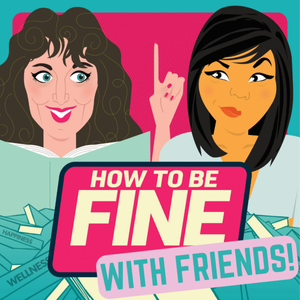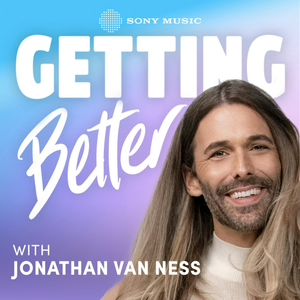
What Is Quiet Quitting? Is It a Good Idea?
Explicit content warning
11/18/22 • 30 min
The so-called “quiet quitting” trend has recently taken the workforce by storm. Unlike real, actual quitting, quiet quitting refers to doing nothing more than what one’s job description states. Quiet quitters continue to fulfill their primary responsibilities but are unwilling to do extra, unpaid work. No more staying late at the office or attending unnecessary meetings.
But how and why has quiet quitting come to be so prevalent among today’s workers? What exactly changed in the months following the COVID-19 pandemic?
In this episode, Dylan gets into the nitty-gritty of quiet quitting — what it is, why it’s happening, and whether it’s a good idea.
Show Highlights
- [01:03] Recap of the episode on the social contract theory
- [03:47] How the idea of social contracts is linked to quiet quitting
- [08:40] The social contract that “baby boomers” know
- [13:32] Why the social contract that baby boomers grew up with hardly held true for millennials
- [16:23] Why the HR practice of promoting from without gave rise to job hopping
- [18:17] How the COVID pandemic changed the US job market
- [21:54] How the COVID-19 recession differs from previous recessions in US history
- [23:28] How the COVID-19 pandemic affected how Gen Z employees approached jobs
- [27:11] Why quiet quitting goes back to discussions of GDP as a poor measure of well-being
- [28:06] On whether quiet quitting is a good idea
- [28:36] Closing statements
Links and Resources
- Episode 12: Unpacking the Social Contract Theory
- Fiscally Savage
- Fiscally Savage Tools
- Fiscally Savage on Instagram
- Fiscally Savage on Facebook
- Fiscally Savage on Twitter
Books Mentioned
- Leviathan by Thomas Hobbes
- The Social Contract by Jean-Jacques Rousseau
- Bowling Alone: The Collapse and Revival of American Community by Robert Putnam
The so-called “quiet quitting” trend has recently taken the workforce by storm. Unlike real, actual quitting, quiet quitting refers to doing nothing more than what one’s job description states. Quiet quitters continue to fulfill their primary responsibilities but are unwilling to do extra, unpaid work. No more staying late at the office or attending unnecessary meetings.
But how and why has quiet quitting come to be so prevalent among today’s workers? What exactly changed in the months following the COVID-19 pandemic?
In this episode, Dylan gets into the nitty-gritty of quiet quitting — what it is, why it’s happening, and whether it’s a good idea.
Show Highlights
- [01:03] Recap of the episode on the social contract theory
- [03:47] How the idea of social contracts is linked to quiet quitting
- [08:40] The social contract that “baby boomers” know
- [13:32] Why the social contract that baby boomers grew up with hardly held true for millennials
- [16:23] Why the HR practice of promoting from without gave rise to job hopping
- [18:17] How the COVID pandemic changed the US job market
- [21:54] How the COVID-19 recession differs from previous recessions in US history
- [23:28] How the COVID-19 pandemic affected how Gen Z employees approached jobs
- [27:11] Why quiet quitting goes back to discussions of GDP as a poor measure of well-being
- [28:06] On whether quiet quitting is a good idea
- [28:36] Closing statements
Links and Resources
- Episode 12: Unpacking the Social Contract Theory
- Fiscally Savage
- Fiscally Savage Tools
- Fiscally Savage on Instagram
- Fiscally Savage on Facebook
- Fiscally Savage on Twitter
Books Mentioned
- Leviathan by Thomas Hobbes
- The Social Contract by Jean-Jacques Rousseau
- Bowling Alone: The Collapse and Revival of American Community by Robert Putnam
Previous Episode

Break the Chains of Debt: 4 Steps to Dealing With Debt
Debt is a common source of financial stress for many Americans. Job losses, medical expenses, and even impulsive purchases can lead to insurmountable debt and get in the way of your financial goals.
If you’re in a financial hole due to debt, the only real solution is to change your debt mindset and start digging your way out, one step at a time.
In this episode of Fiscally Savage, Dylan talks about the debt equation, why people go into debt, and how we can deal with debt problems.
Show Highlights:
- [04:36] What is debt?
- [06:08] The true cost of debt
- [07:37] How debt fools us
- [10:17] Why credit card companies hide their interest rates
- [12:38] Why it’s easy to go into debt
- [13:51] Average American household debt in 2022
- [17:45] The importance of cost-benefit analysis
- [21:39] The four steps to dealing with debt
- [27:22] How Dylan applied those steps to get around his debt situation
Links and Resources:
- Episode 6: Understanding Your Needs and How to Fulfill Them
- Fiscally Savage
- Fiscally Savage Tools
- Fiscally Savage on Instagram
- Fiscally Savage on Facebook
- Fiscally Savage on Twitter
Next Episode

Being Intentional: 5 Steps to Acting With More Intentionality
What does it mean to live life with intentionality? What does it look like to do things with more intention? Perhaps most importantly, how do you start acting with more intentionality?
Dylan answers these questions and more in this latest episode of Fiscally Savage.
Show Highlights
- [02:11] Intentionality and why it’s important
- [04:38] Examples that show a lack of intentionality in decisionmaking
- [08:10] What happens when you act with more intentionality
- [11:18] Five steps to acting with more intentionality
- [12:20] The importance of cultivating a sense of self
- [15:51] Why core values matter in relationship building
- [19:06] The importance of creating a plan, no matter how small
Links and Resources:
- Fiscally Savage
- Fiscally Savage Tools
- Fiscally Savage on Instagram
- Fiscally Savage on Facebook
- Fiscally Savage on Twitter
If you like this episode you’ll love

The Women's Eye with Stacey Gualandi | Women Leaders, Entrepreneurs, Authors and Global Changemakers

How to Be Fine

DIY Money | Personal Finance, Budgeting, Debt, Savings, Investing

RN Health Tips from Theresa Crowley RN, for Motivation | Personal Development | Coaching

Getting Better with Jonathan Van Ness
Episode Comments
Generate a badge
Get a badge for your website that links back to this episode
<a href="https://goodpods.com/podcasts/the-human-revolution-with-dylan-bain-595084/what-is-quiet-quitting-is-it-a-good-idea-76148471"> <img src="https://storage.googleapis.com/goodpods-images-bucket/badges/generic-badge-1.svg" alt="listen to what is quiet quitting? is it a good idea? on goodpods" style="width: 225px" /> </a>
Copy